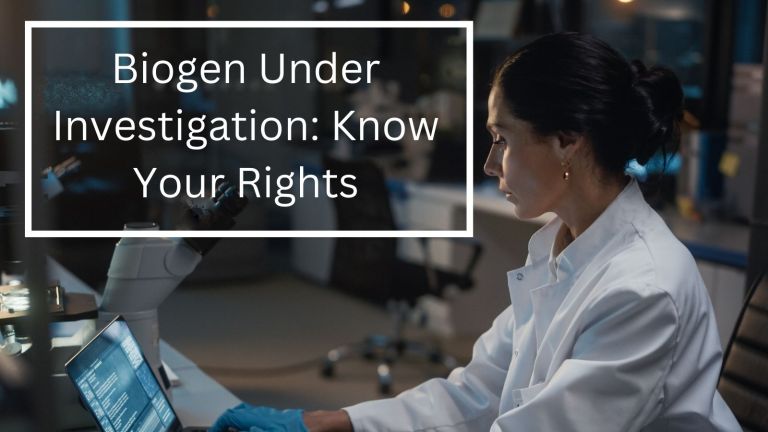Article by John Peterson, Managing Attorney, FBR, with contributions from corporate leaders Emily Cooper, Olivia Tan, Fahran Advani and David Reid.
In 2023, the SEC revealed in its annual report that it received over 12,000 tips from whistleblowers, which brings the total tips received by the SEC to over 50,000.

We often talk about whistleblower rewards and reporting crime to the authorities, but this week, we reached out to corporate leaders around the globe to get their perspective on compliance whistleblowing and corporate whistleblower protection. Whistleblowers usually work at the company they report,, and most whistleblowers will report internally first. Ensuring an empathetic response to claims made internally is the best method on how to handle whistleblower complaints. Here are some of the best tips from the top:
Take the Complaint Seriously
An overarching theme we heard from corporate leaders is to take whistleblowers’ concerns seriously. Emily Cooper, founder of Oliver Wicks, notes organizations cannot let any complaints, no matter how small, go unnoticed. “Whenever an employee decides to become a whistleblower, it is important to take them seriously. Every complaint matters, and a clear investigation plan must be implemented. Interviews must be conducted, and the top management must be ready to address the issues raised in the complaint.”
When considering how to handle whistleblower complaints, dismissing a whistleblower can have various negative consequences for your company. For one, they may not feel like an important, valued company member. Employees who feel appreciated and respected at work are more likely to be happier and, therefore, more productive. Additionally, they will be less likely to seek out other employment opportunities. Moreover, by providing corporate whistleblower protection and ensuring compliance with whistleblowing laws, companies can help employees feel that they don’t need to report the potentially criminal behavior to the SEC or DOJ.
Empathize With the Whistleblower
An answer to how to handle whistleblower complaints in a corporate setting is to understand the challenges the whistleblowers face, says Olivia Tan, the co-founder of CocoFax. “Reporting potential misconduct committed by your coworkers takes courage and should be viewed as a sign of loyalty to the organization. Nonetheless, internal whistleblowers frequently face questions about their motives, open themselves up to criticism from their colleagues, and risk their reputations and livelihoods. Whistleblowers who report compliance concerns to their managers seek reassurance that they did the right thing by raising their concerns and acknowledging their courage to speak out.” The best method of how to handle whistleblower complaints is to show whistleblowers they will be taken seriously and empathize with the challenges they are facing.
Offer Anonymity
A piece of advice for companies dealing with compliance whistleblowing is to ensure that the whistleblowers have anonymity. This principle is built into the SEC’s whistleblower rewards program. Still, it should also be a part of corporate whistleblower protection within an internal reporting channel, according to Farhan Advani, Director of Marketing at Buy Here Pay Here. When asked how to handle whistleblower complaints, Advani notes that “while it is ultimately the whistleblower’s choice to remain anonymous, whistleblowing anonymously allows people who are not actively involved in the fraud to raise concerns without having to expose themselves.” This is critical to ensuring that whistleblowers feel comfortable reporting.
If an employee works with an experienced compliance whistleblowing law firm like FBR, they can easily submit a claim against your company anonymously. Reporting to the United Kingdom government comes with protection from retaliation and the whistleblower’s identity will also be protected. When deciding how to handle whistleblower complaints, it’s wise to consider what your employees may be afraid of. Fear of retaliation, such as being fired, is a primary concern that prevents whistleblowers from coming forward. However, most whistleblowers are motivated by genuine personal integrity. Make sure you have a plan for corporate whistleblower protection to ensure reporting internally is the easiest, safest path forward. This encourages a whistleblower to allow the company to investigate before bringing the matter to the attention of an SEC whistleblower program.
Retaliation Takes Many Forms
When asking how to handle whistleblower complaints, consider that retaliation may take many forms. Despite written protective policies, many internal whistleblowers still suffer retaliation, explains Olivia Tan, co-founder of CocoFax. Tan notes, “retaliating against internal whistleblowers is not just wrong, but it also sends a clear signal to all future whistleblowers that they too might suffer retaliation if they report compliance concerns.”
David Reid, Sales Director at VEM Tooling explains, by punishing the employee, you back them into a corner, making it a virtual certainty the employee will try to take action against the company to defend themselves. This is one of the worst ways on how to handle whistleblower complaints, as retaliation leads to a lose-lose situation for both the company and the whistleblower. Prioritizing corporate whistleblower protection will benefit all parties involved.
Focus On Management
Whistleblowers commonly complain that regardless of policies in place, their superiors don’t respect them. “Organizations should train frontline managers on the challenges that internal whistleblowers face and how to respond to whistleblowers who fear retaliation,” says OliviaTan of CocoFax. Tan advises companies to “train frontline managers on the challenges that internal whistleblowers face to make them better equipped to respond effectively if and when someone approaches them with a compliance concern.”
Similar advice on how to handle whistleblower complaints and compliance whistleblowing was on hand from Burke Files, President Financial Examinations & Evaluations, Inc. Files explained that management are a key part of whistleblower process:
“It comes down to management style. Managers who understand people make mistakes, that are sometimes compounded until they get out of hand – embrace whistleblowers. It allows management to address mistakes while they are small, and long before they blow up into what I call a red-face moment.”
Have The Right Expertise
Many whistleblowers are frustrated by their experience of speaking out, but they are not being heard. A person with expertise on how to handle whistleblower complaints can help avoid miscommunication regarding important issues like what constitutes corporate whistleblower protection. Misunderstandings can happen when a whistleblower hotline is staffed by people who don’t have the technical expertise to understand the wrongdoing being reported. Cindy Corpis, CEO of SearchPeopleFree, gave the following example of insightful compliance whistleblowing:
“If a whistleblower has concerns regarding anesthesia billing, it is helpful if the individual engaging with them has prior expertise and knowledge in that area, as this will allow them to better grasp the whistleblower’s concerns and offer sensible follow-up questions.”
Create an Ombudsman
Bina Patel, Founder of Transformational Paradigms, takes a different approach on how to handle whistleblower complaints. While some companies use external reporting lines, Patel suggests that organizations interested in corporate whistleblower protection establish an internal office of the Ombudsman, which can act as a kind of regulator within the organization:
“The best solution for all organizations is to establish an organizational Ombudsman office. This is a neutral body that is confidential, independent, and impartial. The Ombudsman may be obligated by policy to report whistleblower complaints, but they can go with the employee and report it together so that the whistleblower has an ally when speaking to legal or compliance.”
Get Counsel Involved Early In The Process
In terms of how to handle whistleblower complaints, Daniela Sawyer, Founder of FindPeopleFast.net advises companies to get legal advice early in the compliance whistleblowing process to help with corporate whistleblower protection. “Take advice from professionals as early as possible, as it will help you understand clearly the risks involved and the complexity of the issues.” Not only can good legal advice help navigate complex employment issues, but experienced counsel will also have a wealth of practical experience that can give you an idea of likely outcomes.
Have Clear Policies
“It is important for a company to create a clear whistleblowing policy” explained Kim Chan, CEO of Docpro. Chan notes on how to handle whistleblower complaints, that “a whistleblowing policy is a guideline that informs a company’s employees of their procedures in handling illegal and unethical conduct. This guideline can provide assurance to employees that they will be protected and set out the expectations, rights and obligations of both the whistleblower and the company.”
Treat The Whistleblower Professionally
“As a business leader, you must be prepared to address the whistleblower’s concerns” advises Harriet Chan, Co-Founder and Marketing Director of CocoFinder, when asked about compliance whistleblowing and corporate whistleblower protection. “Interview the whistleblower and treat them professionally, as this will help identify and correct the flaws in the business process.”
These sentiments on how to handle whistleblower complaints were echoed by Stephen Curry, CEO at CocoSign who says “the best way to handle whistleblowers and people who have reported wrongdoing within the company is to make sure that they feel like they can speak up without fear of repercussions, and to take their complaints seriously. Make sure that your employees know about your whistleblower policy, which should be easily accessible on your website or in the workplace.”
Olga Voronkova, Marketing director at KeyUA. Voronkova explains a “company should develop a culture where employees are not afraid to express themselves in front of the members of management.”
Marilyn Gaskell, Founder of TruePeopleSearch, similarly notes on how to handle whistleblower complaints that “employers should do their best to make sure that employees feel free and encouraged to come forward with any information regarding wrongdoing in the workplace. Protect and strengthen your company’s ethical backbone through compliance programs and employee education solutions, such as a robust whistleblower policy. Because whistleblowers are vital to the success of any company, several strategies are necessary for dealing with and creating workplace loyalty.”
These are excellent compliance whistleblowing insights for corporate leaders looking to develop corporate whistleblower protection programs, but if you are an employee considering becoming a whistleblower, make sure you speak to experienced counsel before doing so. A whistleblower attorney can advise on how to handle whistleblower complaints, which will ensure you have a complete picture of all the options available to you and advice on any protections you may be entitled to.

















